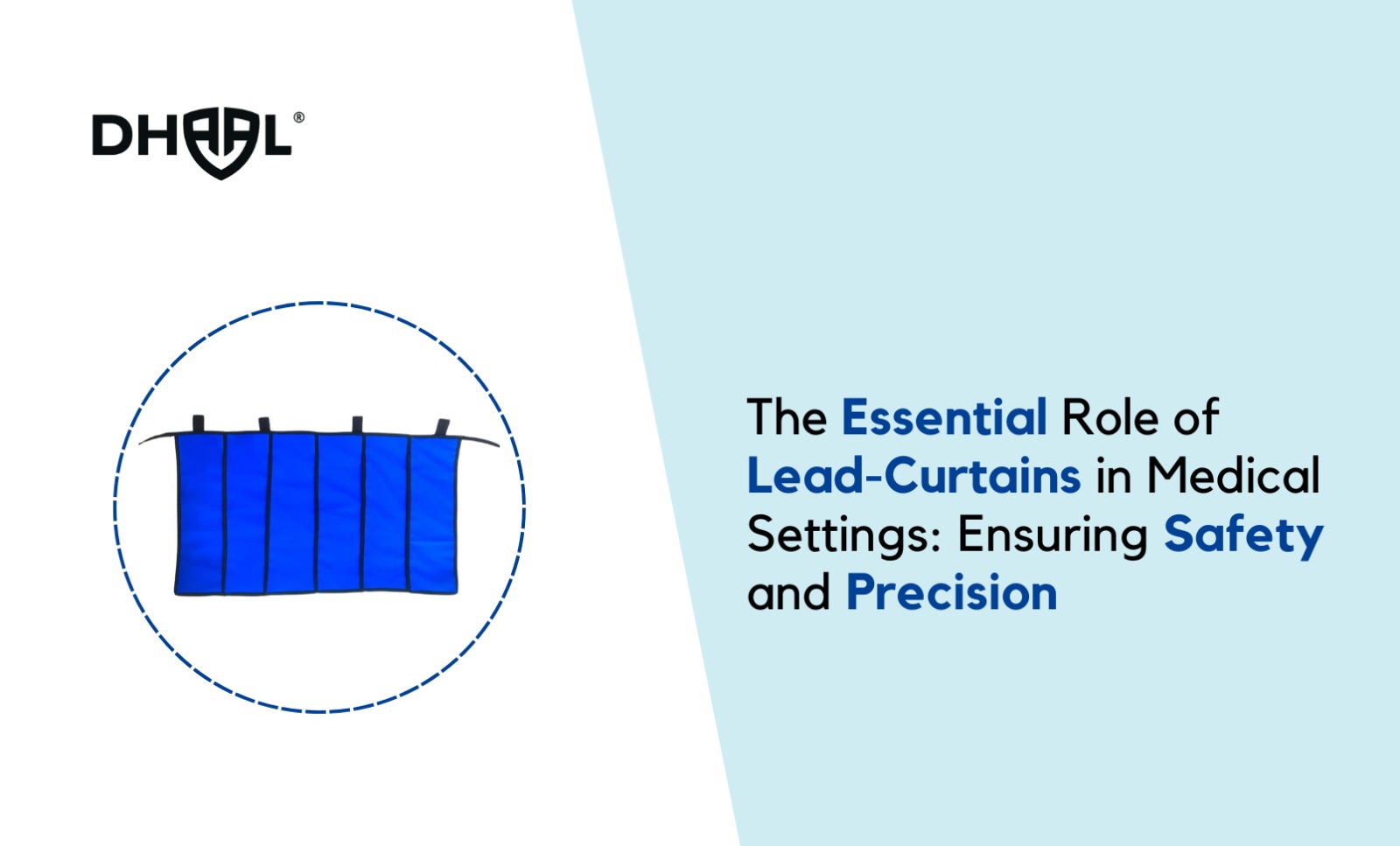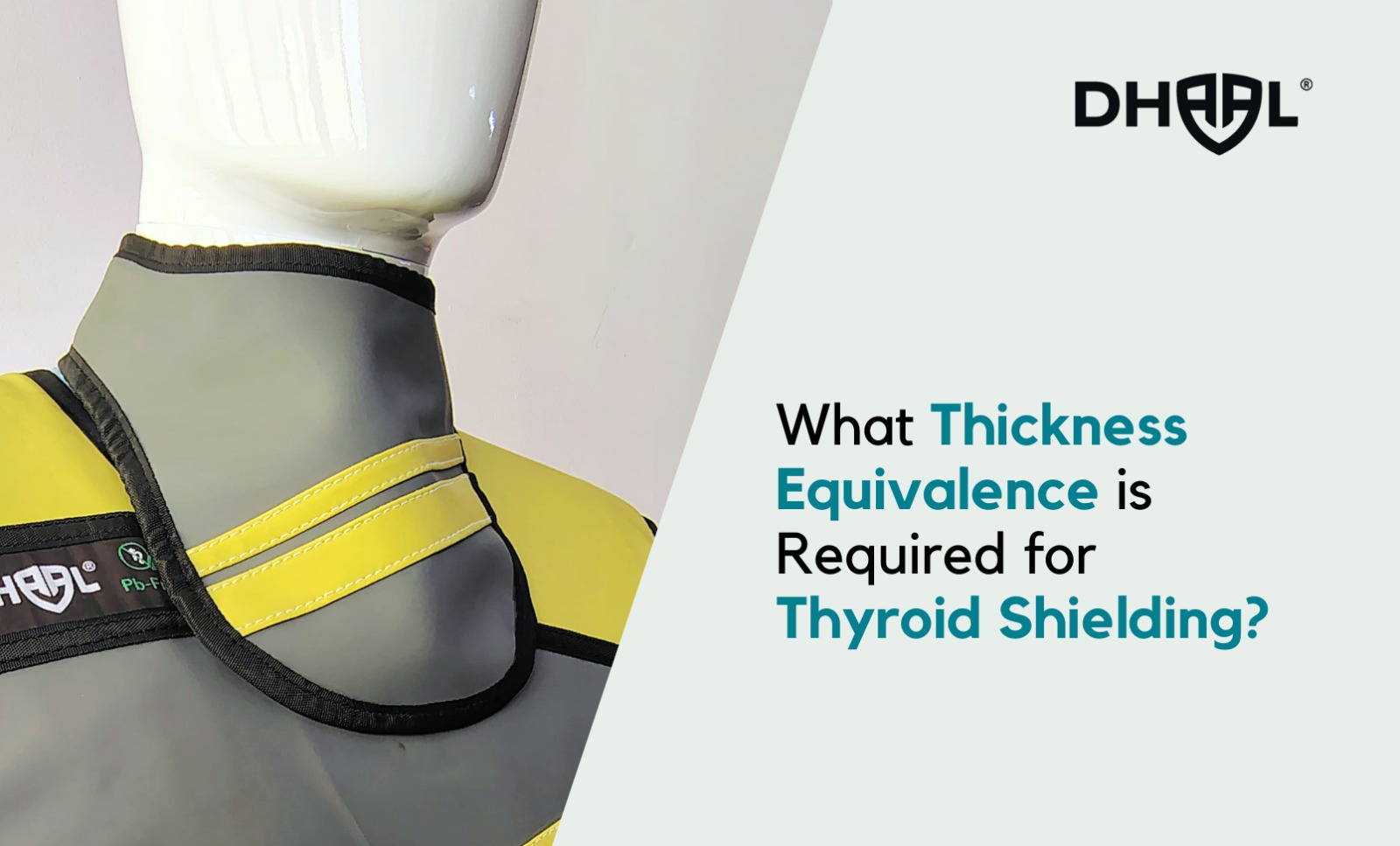
Choosing the right thyroid apron for your practice is essential for ensuring the safety and protection of both healthcare professionals and patients during radiographic procedures. Here is a detailed guide on what to consider when selecting the appropriate thyroid apron:
- Understanding Thyroid Protection
The thyroid gland is highly sensitive to radiation, and exposure can increase the risk of thyroid cancer and other health issues. Thyroid aprons, also known as thyroid shields, are designed to protect this vital gland during X-rays and other radiographic procedures.
- Material and Protection Level
- Lead Aprons: Traditional thyroid aprons are made of lead, offering robust protection against radiation. Lead aprons are effective but can be heavy.
- Lead-Free Aprons: Newer materials like bismuth, antimony, and tungsten provide protection similar to lead but are lighter and more environmentally friendly. These materials can be a good alternative if weight and disposal are concerns.
- Lead-Composite Aprons: These aprons combine lead with other materials to reduce weight while maintaining a high level of protection.
- Protection Standards
- Lead Equivalence: This term refers to the thickness of lead used in the apron. Commonly, thyroid aprons have a lead equivalence of 0.25 mm, 0.35 mm, or 0.5 mm. Higher lead equivalence provides greater protection but can be heavier.
- Compliance with Regulations: Ensure that the thyroid apron meets the standards set by regulatory bodies such as the National Council on Radiation Protection and Measurements (NCRP) or the International Electrotechnical Commission (IEC).
- Comfort and Fit
- Size and Adjustability: Choose an apron that fits comfortably around the neck and covers the thyroid area adequately. Adjustable Velcro straps or snap closures can provide a secure fit for different neck sizes.
- Weight: Consider the weight of the apron, especially if it will be worn for extended periods. Lighter aprons are more comfortable and can reduce strain on the wearer.
- Durability and Maintenance
- Material Durability: Select aprons made from durable materials that can withstand regular use and cleaning.
- Maintenance Requirements: Check the manufacturer’s guidelines for cleaning and maintaining the apron. Proper care is essential to ensure the apron remains effective over time.
- Cost and Budget
- Budget Constraints: While lead-free and lead-composite aprons can be more expensive, they may offer better comfort and longevity. Consider your budget and the long-term investment.
- Cost-Benefit Analysis: Weigh the benefits of different types of aprons against their costs. Investing in higher-quality aprons may reduce replacement costs and improve user comfort.
- Vendor and Warranty
- Reputable Vendors: Purchase thyroid aprons from reputable suppliers known for quality and compliance with safety standards.
- Warranty and Support: Check for warranties and after-sales support. A good warranty can provide peace of mind regarding the apron’s durability and effectiveness.
- Special Features
- Customization Options: Some vendors offer customization options such as different colors, personalized logos, or additional padding for comfort.
- Compatibility with Other Protective Gear: Ensure that the thyroid apron can be easily worn with other protective gear like leaded glasses, gloves, or full-body aprons.
Conclusion
Selecting the right thyroid apron involves balancing protection, comfort, durability, and cost. By understanding the different materials, protection levels, and features, you can choose an apron that best meets the needs of your practice while ensuring the safety and comfort of your staff and patients. Regularly reviewing and updating your protective gear based on the latest standards and technologies can further enhance radiation safety in your practice.



